Pope Francis Declares Capital Punishment Unacceptable In All Circumstances
In what amounts to a significant, albeit not surprising, change in Catholic doctrine, Pope Francis has declared that the death penalty is unacceptable in all circumstances.
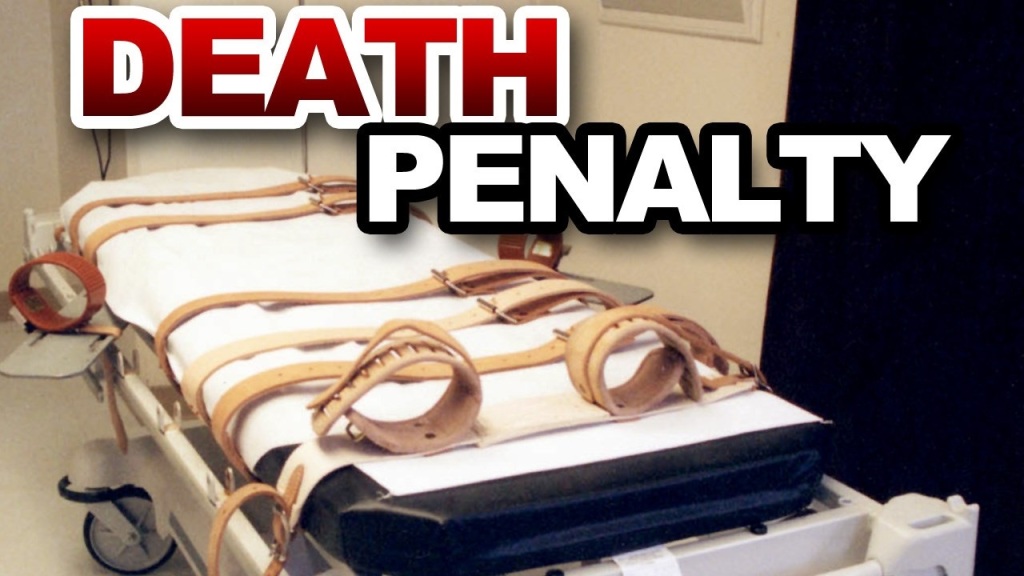
Pope Francis has announced what amounts to a significant, if seemingly inevitable, change in Catholic doctrine regarding the death penalty:
ROME — Pope Francis has declared that the death penalty is wrong in all cases, a definitive change in church teaching that is likely to challenge faithful Catholic politicians, judges and officials in the United States and other countries who have argued that their church was not entirely opposed to capital punishment.
Francis added the change to the Catechism of the Catholic Church, the book of doctrine which is taught to Catholic children worldwide and studied by adults in a church with 1.2 billion members.
Francis said executions are unacceptable in all cases because they are “an attack on the inviolability and dignity of the person,” the Vatican announced on Thursday.
The church also says it will work “with determination” for the abolition of capital punishment worldwide.
Francis’ decision is likely to put many American Catholic politicians in a difficult position, especially Catholic governors, like Greg Abbott of Texas and Pete Ricketts of Nebraska, who have presided over executions.
The move could also set off a backlash among American Catholic traditionalists who have already cast Francis as being dangerously inclined to change or compromise church teaching on other issues, like permitting communion for Catholics who have divorced and remarried without getting a church annulment.
On social media, some Catholics are asking whether the Vatican timed the announcement to deflect attention from the scandal over revelations that former cardinal Theodore McCarrick was allowed to climb the hierarchy despite accusations made to senior church officials that he was sexually abusing his seminary students.
The new teaching could also complicate the lives of American Catholic judges.
In a 2002 article, Justice Antonin Scalia, who died in 2016, said there was no tension between his support for the death penalty and his faith because “the latest version of the Catholic catechism does not purport to be binding teaching — that is, it need not be accepted by practicing Catholics, though they must give it thoughtful and respectful consideration.”
The new teaching appears to make the conflict much sharper, if not definitive.
President Trump’s nominee to the Supreme Court, Judge Brett M. Kavanaugh, is Catholic, as are Chief Justice John G. Roberts Jr. and Justices Clarence Thomas, Samuel A. Alito Jr. and Sonia Sotomayor. One of the other finalists for the vacancy created by the retirement of Justice Anthony M. Kennedy was Judge Amy Coney Barrett, who is also Catholic.
She wrote a 1998 law review article suggesting that Catholic judges should consider recusing themselves in some death penalty cases that might conflict with their religious beliefs.
Abolishing the death penalty has been one of Francis’ top priorities for many years, along with saving the environment and caring for immigrants and refugees. He mentioned it in his address to the American Congress on his trip to the United States in 2015, saying that “from the beginning of my ministry” he had been led “to advocate at different levels for the global abolition of the death penalty.”
He added, “I am convinced that this way is the best, since every life is sacred, every human person is endowed with an inalienable dignity, and society can only benefit from the rehabilitation of those convicted of crimes.”
The new teaching builds on the instructions of Francis’ two immediate predecessors.
“This didn’t come out of nowhere,” said John Thavis, a Vatican expert and author. “John Paul II and Benedict laid the ground work; he’s taking the next logical step.”
“I think this will be a big deal for the future of the death penalty in the world,” he added. “People who work with prisoners on death row will be thrilled, and I think this will become a banner social justice issue for the church.”
Previously, Church doctrine on the death penalty stated that it was considered generally unacceptable in nearly all circumstances but allowed for the possibility in those rare cases where not going forward with execution would allow an “unjust aggressor” to take more innocent lives. As the late Pope St. John Paul II noted at the time that this version of Church doctrine was revised more than twenty years ago, though, those circumstances were considered to be very rare, and perhaps non-existent due to the ability of most nations to securely detain someone convicted of even the most heinous forms of murder so that they are never able to harm another innocent person. Since that time both John Paul II and Francis’s immediate predecessor Benedict XVI have made it clear that the circumstances under which capital punishment was considered acceptable under Catholic doctrine were limited and that opposition to the practice should be considered the default position for Catholics notwithstanding the caveat contained in the previously announced doctrine. Today’s announcement, then simply serves to make clear something that has become an unstated assumption in the ensuing decades, that the death penalty is never acceptable under Catholic doctrine.
As Ed Morrissey notes this change is likely to create some tension even among devout Catholics, especially here in the United States:
The removal of the previous technical opening will create tension and conflict among faithful Catholics who see the death penalty as a rare but necessary option. At least, it appears the Vatican has grown a bit more sensitive to this point after Francis suggested that support would be a mortal sin in his May 2017 homily. Crux reports that Cardinal Luis Ladaria, prefect for the Congregation for the Doctrine of the Faith, argued that this was not a change in doctrine but a development of its understanding, a sotto voce invitation for Catholics to find a way to embrace it:
According to Ladaria, the new formulation of the Catechism expresses “an authentic development of doctrine that is not in contradiction with the prior teachings of the Magisterium.”
He then explains that previous Church teaching with regards to the death penalty can be explained in a social context in which the penal sanctions were understood differently, and “had developed in an environment in which it was more difficult to guarantee that the criminal could not repeat his crime.”
Ladaria takes care to point out in his letter to bishops that both St. John Paul and Pope Emeritus Benedict XVI both wrote explicitly in favor of abolishing the death penalty as part of supporting a culture of life. Perhaps that will ease the jolt of this transition, but a number of faithful Catholics still support the death penalty for particularly inhumane and depraved behavior, and do so in good-faith reliance on previous teachings and specific points of scripture. Even if the “mortal sin” language has been dropped explicitly, it will hang in the air nonetheless with these changes to the catechism. These Catholics will find themselves having been separated from the church without having moved at all, a position of injustice if not mitigated properly in this process — even if in practice the church has been moving in this direction for decades.
To be fair, while there are many Catholics, including those who have considered themselves devout, who have continued to support capital punishment in at least some circumstances notwithstanding even the limited circumstances under which it was considered permissible prior to this change, it has been my experience that many of the most devout Catholics are as adamant in their opposition to the death penalty as they are in their opposition to abortion. For these Catholics, the change in doctrine will not come as much of a shock. The reaction is likely to be different, though, among other self-identified Catholics who have supported the death penalty notwithstanding Church teaching. For example, a June 2018 Pew Research poll found that 53% of those surveyed favor the death penalty for murder while 42% oppose it. Among white Catholics, 57% said they support it while just 35% are opposed. It’s worth noting, though, that the poll included all people who self-identify as “Catholic” and does not appear to differentiate between people who consider themselves Catholic and those who can be classified as devoutly Catholic, which generally means that they attend Mass on a regular basis. In any case, though, the poll does seem to indicate that there may be some tension in the wake of this change in doctrine, especially among American Catholics who may be more politically conservative.
The more interesting impact of this change, of course, will be the questions it raises for politicians in states where the death penalty is permitted, and especially on Governors in those states who have the authority to preside over executions. For some forty odd years now, it has been politically liberal Catholics who have faced criticism over seeming disparities between their faith and their politics on the issue of abortion. This change means that there could end up being similar pressure on conservative Catholics who continue to support the death penalty, especially on Governors who have the authority commute the sentences of defendants on death row. As noted in the article linked above, this includes Greg Abbott, the Governor of Texas, the state which has executed more prisoners than any other states since the Supreme Court lifted the nationwide moratorium on capital punishment in the mid-1970s. Abbott is a Catholic, but is also a strong supporter of the death penalty and has presided over several executions both as Attorney General of Texas and as Governor. How he reconciles that position with the clear moral teaching of his church will be, shall we say, interesting to watch,

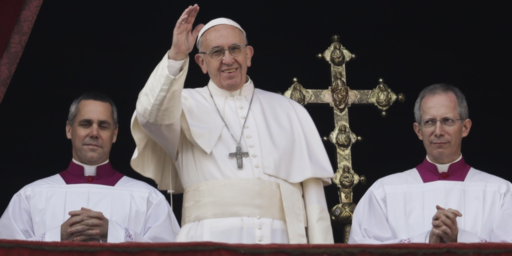
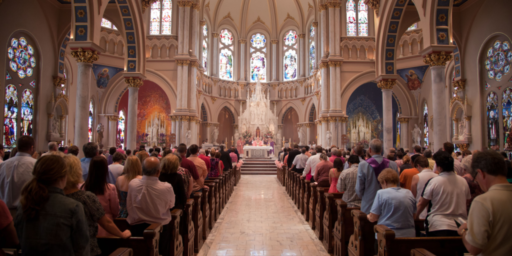
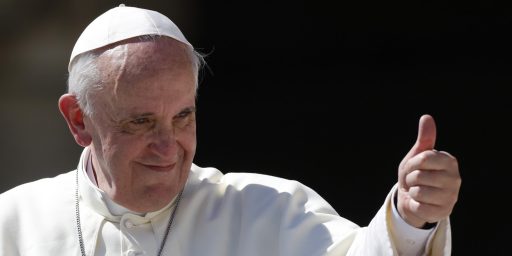

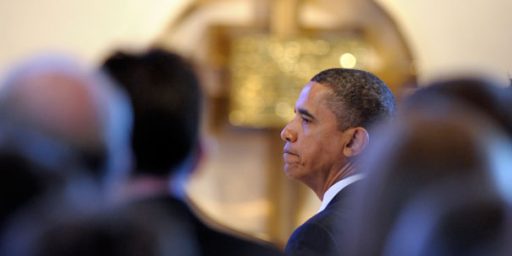
If it wasn’t for the death penalty, we wouldn’t even have Catholicism. I bet that libtard Pope didn’t think of that, did he?
It’s not a change in Catholic doctrine. It’s a change – in America – in political Catholic doctrine. There’s a big difference.
@Gustopher: Am I going to hell because I laughed when I figured that out?
While I am not minimizing the importance of this statement, it does seem convenient that it comes out at a time when the church desperately needs a distraction from yet another sexual abuse scandal.
My cynicism extends to saying this: Conservative Catholics, in particular politicians, will suddenly loudly proclaim their respect for the wall of separation between church and state.
@MarkedMan: I don’t consider it too much of a big deal at all. And I believe it is no distraction at all for many Catholics. And if you are not a Catholic – why even care? It’s not going to alter public policy.
Which makes me wonder how (or if) the DJT “Hyper-Art of Distraction” has impacted our culture.
When we begin evaluate public events in terms of what is someone trying to distract the public about, the speculation of manipulation becomes divisive. Sometimes things just happen, like a bus running late. It doesn’t mean that the transportation company is being used to distract people from corruption in the Fire Dept.
But they can still burn witches and heretics, right?
@Kathy: More likely they’ll claim simply that the Pope isn’t Catholic. And bears shit outside the woods.
@Kylopod:
I can see them doing that. It would bring them closer into agreement with many of their Protestant allies, who often claim the Pope is not Christian.
@Bob@Youngstown: I served my 12 in the Catholic school system and subsequent generations of my family have done the same (albeit not my kids) so I have an admittedly semi-cynical insight into how this works. During the decades long child abuse scandal the Church has repeatedly played the outside drama card. Perhaps the most effective use was after the first round (or at least the first round that I was aware of) and they latched on to the whole “Life Begins At Conception” nonsense which, up until that time, was a rarefied theological concept relegated to the same dusty academics who debated whether angels had corporeal existence or belief in Limbo flowed inevitably from articles of faith.
@Bob@Youngstown:
I don’t know. I’ve heard the “it’s all a distraction” so many times, I don’t even consider it seriously.
I’ve heard it in connection with the Argentinian occupation of the Falklands (by both sides!), some of Clinton’s military interventions, and most saliently, the last time the Popocatepetl volcano near to Mexico City began to sporadically spew ash and gas.
At that, anyone who can command a volcano into mild, serious but non-catastrophic activity, would be more likely to draw attention to themselves than to create a distraction.
@Kylopod:
But they do! During my second sojourn in upstate NY we had to keep our garbage cans in the garage because of one particular bear. On a couple of occasions we forgot to close the overhead door and the bear would come in, drag the garbage cans to the driveway, pull out all the bags and drag them to the middle of the lawn, whereupon it would rip them to shreds and then carefully shit right on top of the mess.
Never saw the pope though…
The Catholic Church in Latin America has been opposed to the Death Penalty for decades. It’s one of the reasons that basically no country in LA has abortion on demand and death penalty. Besides that, the only Major party candidate in a presidential ticket to oppose the Death Penalty since Dukakis was a Catholic.
To me (A welcome) surprise would be if pro-death Penalty Catholic Politicians were denied communion, like they want to do with some mildly pro-choice politicians.
@MarkedMan: I shan’t engage in “was fertilization a distraction debate”, save to say that the Catholic Church’s current position on abortion is 144 years old. In the 1869 document Apostolicae Sedis, Pope Pius IX declared the penalty of excommunication for abortions at any stage of pregnancy.
But that was not my point (so I’m not going down that rabbit hole).
I just wanted to say that it’s my belief (much to the chagrin of Rome) that the US Catholic is generally more pragmatic (or transactional) than dogmatic. The consequence of that is that many (maybe even most) practicing Catholics in the US view such things as abortion or executions as appropriate as circumstances dictate, a position that is not unique to the general public.
It is that pragmatic nature that leads me to the notion that this position on capital punishment will have minimal impact -including impact on policy makers.
I just don’t see lawmakers or executives (in the US) abruptly changing laws or postponing executions … because …. Rome said so!
Beyond that, and more importantly, if we are occupied with trying to figure out “what are we being distracted from” then the quest to answer that question becomes more important than the event in front of us. The distraction to finding the distraction becomes the ultimate “rabbit-hole”.
Just My opinion.
Two points. First, this is a change in church doctrine not dogma. Second, it’s hardly a surprise. Four of the last five popes have spoken skeptically about the death penalty. Francis has been much more definitive in rejecting it.
I think it’s a good step.
@MarkedMan: On the Appalachian Trail it’s sometimes remarked that hikers go off into the woods to shit and bears seem to come out onto the trail to shit. (Unless there are hikers with amazing appetites for berries and seeds and such. And a shortage of T-paper.)
This statement by the Pope is not really a big deal. The majority of nations on earth do not have the death penalty. The vast majority of state administered deaths are in places like China, Saudi Arabia, Iran, Pakistan, Iraq, and one other place of backward and perverted jurisprudence. It is obvious that when the official policy of the state leans to killing people, that place will have an exceptionally high rate of murder. If the best of a country and its elites don’t care about killing, its criminals are not going to care either.
@Kathy: Years ago I was reading an Internet forum where a Jewish commenter was complaining about insensitivity by some of the Christians there. Another commenter, who seemed unsympathetic to the complaints, remarked that she wasn’t always a Christian but had converted. In parentheses, she added, “I used to be RC.”
When I read this, I spent an entire minute trying to figure out what in the heck RC stood for. Rastafarian? RC Cola? Then suddenly it dawned on me she meant Roman Catholic.
In other words, she used to be Roman Catholic, but now she’s “Christian.” Get it?
@Kylopod:
I hate when Evangelicals refer to themselves as Christians because that mirrors anti-Catholic propaganda that was correlated with discrimination in the past.
@Andre Kenji de Sousa:
Mirrors? Many of them go far beyond dogwhistles. The religious right in the US involves a pact between conservative Protestants and Catholics (and sometimes Orthodox Jews), but it’s a very delicate alliance. For instance, Pastors Hagee and Jeffress have both made virulently anti-Catholic (and tacitly anti-Semitic) remarks, which became something of an issue when they attended the ceremony on moving Israel’s US embassy this year. But most of the right is willing to overlook it because they care more about their common enemy. In other words, Hitler and Japan.
@Kylopod: @Andre Kenji de Sousa:
I admit I don’t understand Christianity (or, really, any modern religion). But I know a bit of its history (past Theodosius I, Roman politics become embroiled with Christian issues of all sorts).
I find it interesting to note that after Constantine I legalized Christianity through the Edict of Milan (which imposed toleration of all religions, and was thus a good thing), the very first thing many Christians did with their freedom to practice their religion, was to persecute other Christians over theological disagreements.
The Edict was issued early in the IV Century CE, so Christian splinters and fights and persecutions over such differences go back that far. The players change, but the game remains the same.
At that, the fights against the Monophysites and Nestorians pale in comparison to the wars unleashed by the Reformation, which was the pinnacle of Christian vs Christian hostility. By those standards, the conflicts today are tame. But they still go on.
@Kylopod:
There is the same alliance between some Catholics and Evangelicals in Brazil, and frankly the Catholics that engage with that deserve everything bad that happens to them. They should know who they are messing with.
@Kathy:
.
Oh, Kathy, you and your nuance. Real Americans like their history neatly Manichean: Purehearts over here, Dastards over there. I think you could argue that happened once in human history, WW2, and then only if you ignore some ruthless colonialism, Josef Stalin, a segregated army and the deliberate creation of firestorms in civilian cities.
If you insist on muddying the picture with inconvenient facts, how are we going to know which team we support?
@Andre Kenji de Sousa: It’s noteworthy that America’s religious right doesn’t try to build an alliance with conservative Muslims. The idea isn’t as obviously outlandish as it might seem at first. After all, plenty of American Muslims share similar views with conservative Christians on abortion, gay rights, and other issues. If the Christian right can include socially conservative Jews as part of its coalition, despite their not accepting Jesus, why not Muslims also?
In fact, there’s one American right-winger who did attempt to do just that. It was Dinesh D’Souza in his 2007 book The Enemy at Home, which proposed a pact between Christians and Muslims over their mutual hatred of the real enemy, morally decadent secularism, which D’Souza blamed for 9/11. The book was not well-received in right-wing circles, and he’s more or less shut up about its thesis since then.
The evangelical right is willing to put aside its differences with Catholics, Mormons, and Jews, at least for the time being. But Muslims are a bridge too far for them–partly because they’ve built an entire worldview that considers Islam to be the enemy, and also because of their fervent support for Israel, which gives them common cause with conservative Jews but not conservative Muslims. Yet even the coalition they have with other non-Protestants is extremely brittle.
@Kylopod: Grover Norquist also once proposed bringing American-Muslims to the Republican Party. The problem is that Evangelicals Churches have a project of power – both financial and political – and they are going to fight with themselves if necessary to achieve that. Abortions, gays, they don’t care about that. They only use it to manipulate their flock.
To them Catholics, Muslims and even Jews are not potential allies, they are the competition. They are going to fight among themselves for political power and “customers” (We saw that happening in Brazil).
@Michael Reynolds:
It’s human nature to develop fractious groups that ultimately splinter. You know the joke, strand two people on a desert island and they’ll form five political parties? Why should religion be any different?
@Kylopod: The fundies have this whole thing, that I don’t claim to understand, that by working with Israel they hasten Armageddon and bring about the end of the world, especially the Jews. And since the Jews don’t do Revelations, they accept the help and don’t worry about the prophecy. If Muslims have a role in this, I expect it’s as the villains. As with other undying, eternal conservative principles, theology can be adapted, as it was for when “life” began. But allying with Muslims might be too much for them.
Correction by anyone who has better knowledge of this stuff is welcome.
@Andre Kenji de Sousa:
I don’t have any doubt that they court them in order to neuter them. It is not a co-equal partnership, and it’s dependent on each group’s relative power in society. Despite the anti-Semitic stereotype, Catholics have more political power than Jews, and so they’re granted a closer seat at the table. But in the US, evangelicals find it useful to forge common ground with the likes of AIPAC and Sheldon Adelson. Still it doesn’t stop them from every now and then reminding Jews of their place. Some years back after the ADL criticized Mike Huckabee for having compared the national debt to the Holocaust, he briefly slipped into mafia-don mode: “Israel and the Jewish people need to make friends, not insult the ones they have.” Note the veiled threat (“We’ll protect you as long as you behave yourself”).
@gVOR08: I never tire of quoting the following excerpt from Al Franken’s 1996 book Rush Limbaugh is a Big Fat Idiot:
@Kathy:
You have to remember that these are people who’s entire worldview is premised on the conceit they they alone have the *correct* way of life as given by God and that only that way allows one into Heaven. Divergence cannot exist when you claim to have the absolute divine truth because truth is singular. Anyone who really thinks they are correct in the game of eternal life isn’t going to allow someone to sully their message to lead others astray.
Think about it like this: 1+1=2 right? Clean, clear mathematical truth. You can prove it and everyone else staying 1+1=7 is clearly wrong so #&%$* those obviously ignorant heathens. But then someone comes up and states 1.6666 +.3333=2 because rounding doesn’t matter and it’s exactly the same as the whole number. Do you let that slide? Wasn’t the whole point the clean and simple basic obviousness of the math? 1.9999 =/=2 but here’s someone it *doesn’t matter* and has no real world effect. Do you let that inaccuracy spread or do you insist on your fundamentals? What’s next, imaginary numbers?
@Kylopod: I think that a important distinction is that Jews are not in a competition with the Evangelical Churches. If you happen to marry a Jew you may want to convert to Judaism, but few people convert to Judaism. Synagogues don’t take churchgoers away from the Evangelicals, unlike the Catholic Church or even Muslims.
The main complaint that Evangelicals have with Muslims Countries is that specially Arab countries ban Evangelical Churches working from working there, and they expanded a lot in Latin America and Africa. They could have extremely large churches in Muslim countries if these countries allowed them to do so.
There areas in São Paulo and Rio de Janeiro controlled by drug cartels where Evangelical Churches operate without any hassle(When Dan Harris from ABC News wanted to interview drug gang leaders in Rio he resorted to a American Evangelical Church that had contacts with them). When conservative Catholics have Evangelicals as their allies they should know who they are messing with.
@Kathy: It was called “Rogue’s Island” for a reason…
@KM:
It goes beyond that. With Christianity, IMO, is about power.
I haven’t studied the matter in detail, but in most ancient pagan societies the priesthood of the various gods, while it held some power, was far from being a major power in the land.
The major exception is Egypt, where the priests of Amun owned, in Amun’s name, a hell of a lot of land, and therefore a lot of power. Many historians claim Akhenaten set up his religion centered on the god Aten as sole god, as a means of stripping power from the priests of Amun. It lasted his lifetime and nothing else.
Another exception is in Israel and Judah, where the priestly class of Jehovah is given explicit authority in the Bible. The Bible also claims the first kings were anointed by Jehovah’s own prophet. The Jews had a single god, which was considered all-knowing and all-powerful. This gives the priests a lot of influence.
In the Egyptian creed, the notion of an afterlife developed over time. In the beginning, the belief was that the Pharaoh would be resurrected as Osiris. Eventually everyone could aspire to an afterlife, or resurrection in a different plane of existence (plainly there were no resurrected people running around Egypt). Thus you find copies of the Book of the Dead and funerary goods and tokens buried along with the embalmed corpses.
Christianity also has a good afterlife, and an all-powerful god (or three gods, or one god with three aspects or parts, it’s confusing). You see where I’m going with this?
Roman religion had no nice afterlife, although most emperors were deified, made into gods, after their deaths (there was even a cult of the Caesars). Their gods were powerful, but not all-powerful, and each controlled different aspects of life and/or nature. So the power of the priests was limited and spread out.
My notion is that when Rome adopted Christianity as an official state religion, the church got a lot of power and has relinquished it only recently. The very capable emperor Theodosius I, for example, was pretty much held on a leash by the Bishop of Milan, Ambrose.
So it’s clear as well that power-wielding religions don’t care for competition. That’s why you have infighting among various branches, schisms, and eventually the very bloody wars over the Reformation.
George Lakoff wrote a whole book, Whose Freedom, on the idea that to conservatives “freedom” doesn’t mean what you and I and Funk and Wagnalls think it means. To them it means being able to do their duty. And part of their duty, as they see it, is to make you do your duty, as they see it.